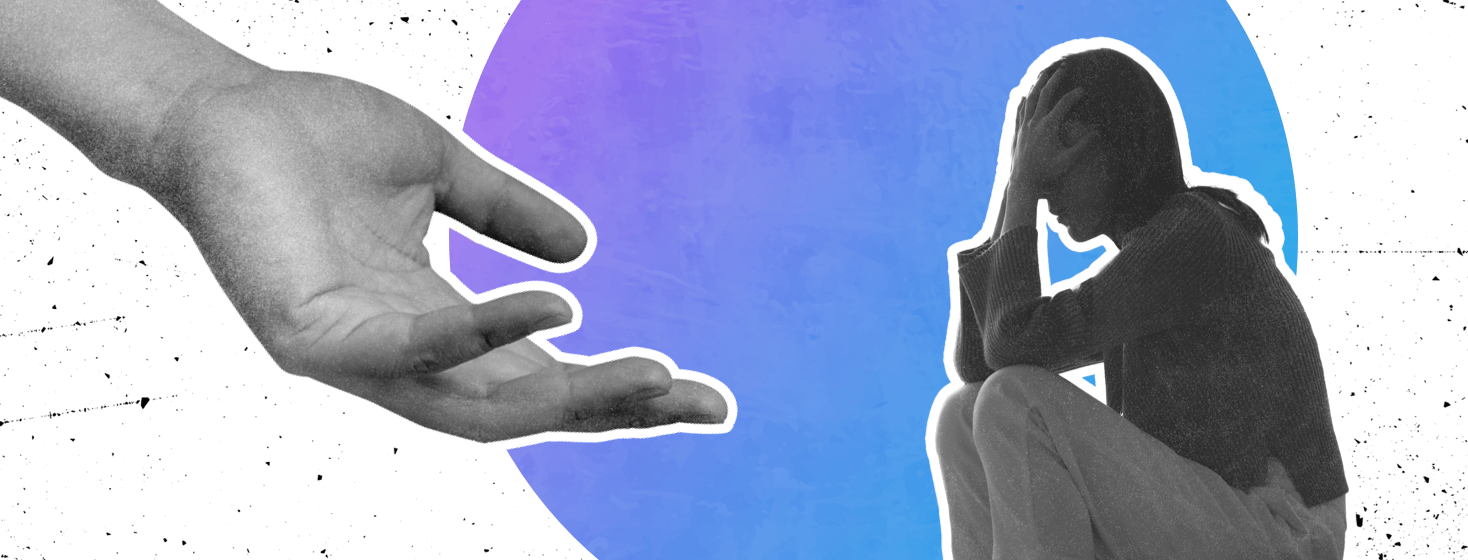Survey Reveals Caregivers Identify Emotional Support for Themselves As Top Information, Resource Need
Following HCPs, current caregivers of people with chronic conditions rely on condition-specific websites, other social health resources for information, help
Published November 29th, 2022 | 4 Minute Read
PHILADELPHIA — November 29, 2022 — A new survey from Health Union, the leader in social health, shows caregivers and care partners are most in need of information and resources to better support their emotional health, in addition to resources concerning decision-making and patient care. The findings from the Caregiving In America survey, which featured current and former caregivers of people living with chronic and complex health conditions, can provide the healthcare industry with a better understanding of the types of content and resources caregivers identify as important, and how to deliver those resources.
An analysis of the 170 Caregiving In America survey respondents who are currently caregivers reveals they are interested in more information or resources about how to improve their own emotional and mental health and well-being. Current caregivers identified emotional support for themselves (59%) as the top information or resource they need more of, followed by emotional support for the patient (48%), how to create time to rest or rejuvenate (44%) and financial support or assistance (32%).
This impact on caregivers’ emotional health is supported by additional findings, with 55% of current caregivers saying caring for their patient has had a significant negative impact on their stress level and 53% citing a negative impact on anxiety levels. Only one-fifth of current caregivers considered their health to be either “very good” or “excellent.”
On average, respondents who are currently caregivers spend 30.5 hours per week providing care, with 22% spending more than 40 hours weekly. Potentially related, one-third of current caregivers said they feel overwhelmed by their caregiving responsibilities, and three in 10 said they often experience caregiver “burnout.” On top of that, nearly four in 10 said they feel guilty when they try to do things for themselves.
The stressors that impact caregivers’ mental and emotional health and well-being are varied. One major stressor is the need to provide emotional support to the patient. In addition to 92% of current caregivers saying they provide their patient with emotional support, this was identified by respondents as the most difficult task they provide.
Findings also highlight the importance of the availability of caregiver resources about decision-making and patient care. Of note, eight in 10 current caregiver respondents said they are involved in treatment plan decision-making. Nearly three-fourths said they recently discussed questions or concerns to the healthcare team that the patient hadn’t brought up. Additionally, only 14% of current caregivers said they felt well-prepared when they first started providing care, and 43% said they have regrets pertaining to patient care.
While healthcare providers represent caregivers’ biggest resource for learning about or managing their patients’ condition, they are followed by multiple social health resources. Nearly three-fourths of current caregivers said they use condition-specific websites and seven in 10 leverage internet searches. At least a fifth also use prescription product or manufacturer websites, Facebook and online support groups or caregiver communities.
“We’ve seen across all of Health Union’s online health communities the degree to which many care partners provide physical and emotional care, often at the expense of their own health and well-being,” said Amrita Bhowmick, Health Union’s chief community officer. “Naturally, it is important to provide relevant and beneficial resources that care partners can use to bolster their emotional and mental health, in addition to vital resources for better managing patient care.”
The Caregiving In America survey, which was fielded from Dec. 1, 2020 to Nov. 26, 2021, included responses from 170 current caregivers of people living with a chronic health condition and 67 previous caregivers of now-deceased individuals. Additional survey results may be available upon request. More information and perspectives about caregiving for chronic and complex health conditions can be found within Health Union’s various condition-specific online health communities.
Related Articles
Reduce Mental Health Stigma with Conversations
Talking about mental health is hard. Learn how health discussions in online communities can help reduce the mental health stigma.
Loneliness and Health: What’s the (Social Media) Connection?
While today’s technology allows us to be more connected than ever, we’re also lonelier and more socially isolated. Results from a 2018 survey of more than 20,000 respondents found that nearly half (46%) of adults in the U.S. reported feeling (sometimes or always) lonely. Interestingly, Generation Z adults, who are presumably the most connected socially, are actually lonelier.
The Patient and Caregiver Journeys are Interconnected: Addressing caregivers’ needs can make both experiences better
Day in and day out, we observe how a chronic condition or cancer diagnosis not only impacts the patient but their loved ones, as well. The comments and conversation reveal the ripple effect that occurs, and how the diagnosis impacts everyone in the family–often times it can feel as though they have received the diagnosis themselves. Caregivers step forward in recognition of their loved one’s need for care, compassion and support.
About Health Union
Health Union is the proven industry leader driving and amplifying social health. As the premier social health company, only Health Union encourages the dynamic, real-time action people take to find meaningful connections and share information that impact their health journey. The company reaches millions of people through the largest portfolio of condition-specific online health communities (e.g., Migraine.com, MultipleSclerosis.net, LungCancer.net) and health leaders – addressing virtually every condition and providing the information, connection and support they need.
Related Articles
Reduce Mental Health Stigma with Conversations
Talking about mental health is hard. Learn how health discussions in online communities can help reduce the mental health stigma.
Loneliness and Health: What’s the (Social Media) Connection?
While today’s technology allows us to be more connected than ever, we’re also lonelier and more socially isolated. Results from a 2018 survey of more than 20,000 respondents found that nearly half (46%) of adults in the U.S. reported feeling (sometimes or always) lonely. Interestingly, Generation Z adults, who are presumably the most connected socially, are actually lonelier.
The Patient and Caregiver Journeys are Interconnected: Addressing caregivers’ needs can make both experiences better
Day in and day out, we observe how a chronic condition or cancer diagnosis not only impacts the patient but their loved ones, as well. The comments and conversation reveal the ripple effect that occurs, and how the diagnosis impacts everyone in the family–often times it can feel as though they have received the diagnosis themselves. Caregivers step forward in recognition of their loved one’s need for care, compassion and support.




